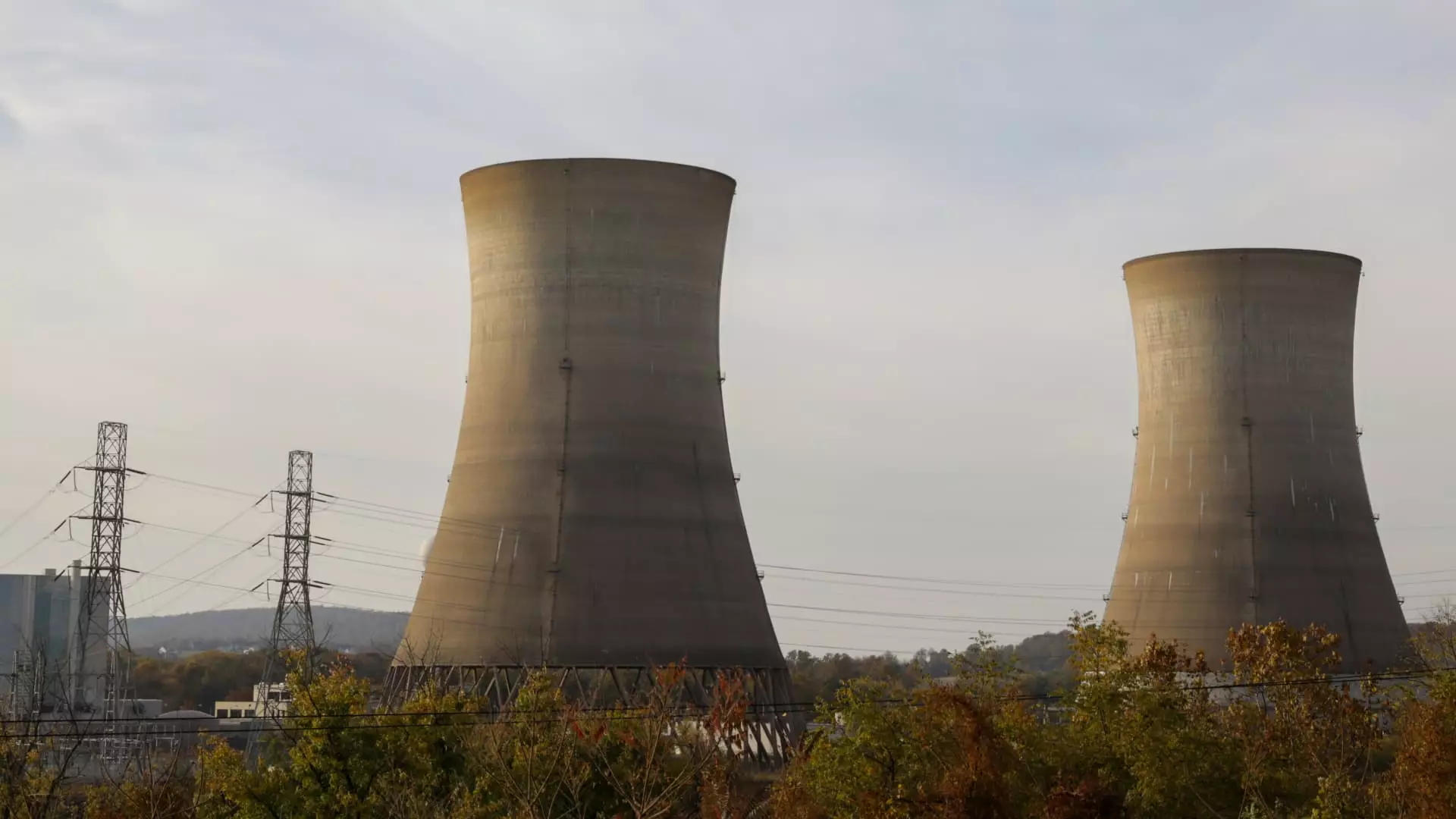In an era marked by urgent climate discussions and energy crises, the renewed interest in nuclear power is both surprising and invigorating. Many once considered uranium a relic of a past energy age, associated with catastrophic disasters like Chernobyl and Fukushima. However, as global energy demands escalate—fuelled largely by the explosive growth in data centers and artificial intelligence—nuclear energy emerges as a compelling solution. The changing tide is not merely a fad; it reflects a deep-seated realization that reliable and low-carbon energy sources are not just desirable but essential for future sustainability.
John Ciampaglia, CEO of Sprott Asset Management, indicates a nuanced but significant shift in attitudes towards nuclear energy. His bullish forecast for uranium positions it not only as a reliable energy source but as one with serious potential for market growth. The Sprott Physical Uranium Trust has seen impressive returns, demonstrating a tangible financial interest that reflects broader shifts in strategic energy planning. The figures don’t lie—22% over two months in uranium values suggests we are witnessing the dawn of a nuclear renaissance.
Energy Security Amid Global Turmoil
The geopolitical landscape often impacts energy supply chains, and recent events have made this ever so evident. For instance, the 2022 energy crisis triggered by Russia’s reduction of oil supply to Europe illuminated just how vulnerable many nations are to external forces controlling conventional energy sources. The lesson here is clear: energy security is paramount, and diversification is key.
Relying on fossil fuels is increasingly risky, and this vulnerability is reshaping political and economic strategies across nations. Countries that once shunned nuclear energy are beginning to rethink their positions, as evidenced by a remarkable reversal in policies—except for Germany, which continues its misguided aversion. The embrace of nuclear power as a stable alternative reflects a growing understanding of energy dynamics that encourages innovation and fosters economic resiliency.
The Advantages of Uranium Over Fossil Fuels
Uranium’s advantages extend beyond just being a stable energy provider. It is, as Ciampaglia notes, “incredibly energy-dense.” This means that a comparatively small amount can produce substantial energy, producing zero greenhouse gas emissions. Choosing uranium as a primary energy source offers a dual benefit: meeting immediate energy consumption needs while also addressing long-term environmental objectives.
Most nations endorsing nuclear solutions recognize the potential for a robust, zero-emissions systems that uphold energy independence. This is particularly pressing as climate change intensifies, necessitating rigorous measures to curb carbon footprints. The transition to nuclear power could be a significant step toward achieving environmental goals, which is a compelling proposition for any center-right liberal advocating for pragmatic climate solutions.
Investment Opportunities in a Nuclear Future
With major hedge funds and investment firms like VanEck entering the nuclear space, investors are clearly paying attention. The wave of interest from institutional investors is an optimistic sign that nuclear energy could be on the precipice of revival. Despite some risks associated with prolonged construction timelines for new nuclear facilities, the potential for handsome returns is luring investors into a sector previously deemed too risky.
However, caution is warranted. While the political winds seem favorable for advancing nuclear power, executing these investments demands patience—a rare quality in volatile markets. As VanEck indicates, the balance of financing immediate energy solutions while building future capacities poses a significant challenge. Still, the wind is at our backs, bolstered by political support and the technological advancements underpinning safer new reactor designs.
Nuclear Power: The Overlooked Solution
At the heart of this energy discussion lies an inconvenient truth: many modern technological advancements are predicated on energy reliability provided by nuclear power. The vast infrastructure supporting the artificial intelligence revolution depends on uninterrupted power supplies, particularly in data centers that cannot afford any downtime. As business leaders increasingly recognize this connection, the call for securing nuclear energy options becomes increasingly urgent.
Political rhetoric may fluctuate, but the necessity for robust energy solutions is constant. In a world teetering on the brink of environmental challenges, reliance on anything less than robust potential sources—like uranium—feels dangerously shortsighted. Countries rushing towards renewables must consider nuclear as part of their overall strategy if they want to maintain energy equilibrium.
Ultimately, the path forward appears to favor those willing to embrace nuclear energy. As public perception shifts, and the political landscape evolves to support this sustainable energy source, the future of uranium looks not just promising—it’s pivotal.

